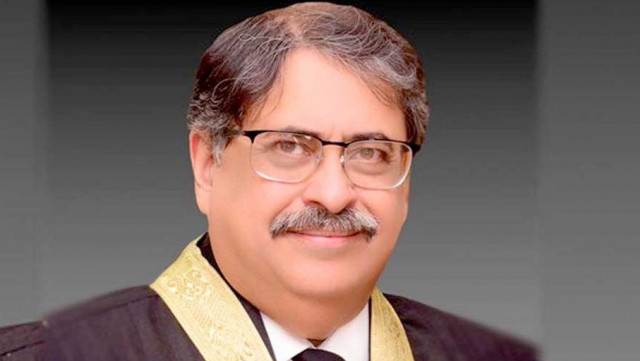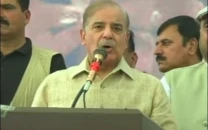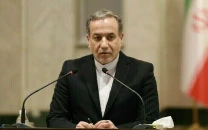Justice Minallah bringing IHC into limelight
CJ, who took charge in Nov 2018, setting high standards in terms of appointments, internal accountability

Despite the controversy generated through purported affidavit of Rana Shamim the ex-chief judge of the Appellate Court of Gilgit-Balistan (G-B), the Islamabad High Court, led by Chief Justice Athar Minallah, is being considered as the most vibrant one among all superior courts in recent days.
Since its establishment in 2010, the IHC was surrounded in several controversies like Supreme Court’s decision declaring dozens of the high court’s employees as illegal. It subsequently caused the resignation of one IHC chief justice, Iqbal Hameed ur Rehman, as well as initiation of misconduct proceedings against another CJ, Muhammad Anwar Kasi.
However, the Supreme Judicial Council (SJC), led by then chief justice of Pakistan Saqib Nisar, had discharged the show cause notice against him.
Similarly, one IHC judge, Shaukat Aziz Siddiqui, was sacked by the SJC on account of his speech at Rawalpindi Bar Association on the manipulation of judicial proceedings by spy agencies in the Panama Leaks case.
Likewise, there were serious allegations of nepotism and corruption in the lower courts of the federal capital in the past.
However, since Justice Minallah took charge as the IHC CJ by in November 2018, the situation has changed on many fronts. This is being appreciated by senior lawyers of the country.
Justice Minallah has set higher standards for the appointment of judges. Even those whose performance was average were not recommended by the IHC CJ for the confirmation of their job.
The new appointments are being made on merit after consulting all the stakeholders.
Justice Babar Sattar’s addition to the high court is being lauded by everyone.
Currently, the IHC CJ has proposed three names for the appointment of IHC additional judges. The Judicial Commission of Pakistan (JCP) will meet on November 23 to consider the new nominations.
Justice Minallah in his letter to the JCP expressively explained as why these lawyers were recommended for appointment.
The incumbent IHC CJ also initiated the process of internal accountability during his tenure.
The first audit conducted by the Auditor General of Pakistan accused ex-IHC chief justice Anwar Khan Kasi of misusing public funds for personal use.
According to the minutes of a meeting of the Departmental Audit Committee (DAC), comprising officials of the IHC, finance ministry and auditors, a sum of Rs1.89 million was the “excess payment of rent of the house” where Justice (retd) Kasi resided while he was serving as a judge and chief justice of the high court.
Last year, the IHC CJ ordered a forensic audit of the high court and the East and West Division of the district courts.
According to a circular issued by the IHC registrar’s office, the auditor general of Pakistan was asked to conduct the forensic audit for the last five years (Sept 30, 2015 to Sept 30, 2020).
During his tenure, Justice Minallah initiated disciplinary action against the judicial officers, who were found committing any kind of misconduct.
Read More: IHC won’t 'hesitate' in acting against ex-CJP Nisar
It is learnt that unlike other superior courts, the summer vacation of the IHC judges was cancelled last time.
Unlike top court judges, no serving IHC judge has so far applied for the government plots. Recently, several IHC benches had passed orders against the allotment of plots to civil servants and judges by the government, a move that cost around Rs50 to Rs60 billion to the public exchequer.
The IHC also suspended the balloting regarding the allotment of plot to government officials and judges in F14- F15 Islamabad.
The IHC’s decisions also affected more than a dozen SC judges who were allotted plots in the government scheme.
Similarly, the high court ruled against the government’s policy regarding allot second plots to grade 22 officers as well as SC judges. The matter was referred to the government for reconsideration. The IHC also questioned the allotment of plots to those judicial officers, who were sacked on account of misconduct.
Appropriate actions were taken against spy agencies officials, who tried to approach judges in certain matters.
In June, during the hearing of former judge Siddiqui’s case, senior SC judge Justice Umar Ata Bandial had disclosed that an incident, similar to what Siddiqui had faced, had happened, but prompt action was taken against the delinquent as the occurrence was reported to the chief justice concerned.
“The concerned judge had the courage to report the incident,” Justice Bandial said, adding that going public to vent apprehensions was “not courage but surrender”.
It is learnt that same incident was happened with the serving IHC judge, who subsequently informed the chief justice.
Subsequently, action was initiated against the ‘serving officer’. Sources in the IHC revealed that appropriate steps were also taken in a few other incidents of such nature in the recent past.
The IHC led by Justice Minallah is consistent in showing restraint in adjudicating political matters as well as issues related to maladministration.
The IHC CJ always advocates the supremacy of parliament. Though petitioners challenge several executive decisions in the capital high court but the high court shows restraint.
Even matters related to bad governance as well as illegal appointments of senior officials are being referred to the federal government for reconsideration rather than giving judicial verdicts. Attorney General for Pakistan Khalid Jawed Khan always appreciates the IHC for not granting stay orders in the financial matters otherwise the country might suffer more in governance issues.
Among all high courts, the IHC always give priority on civil liberties matters. The high court granted bails to several opposition leaders including Nawaz Sharif, Maryam Nawaz, Khawaja Asif, Shahid Khaqan Abbasi, Ahsan Iqbal, Miftah Ismail, Asif Ali Zardari and Faryal Talpur in graft cases in the last couple of years.
The IHC also passed coercive orders in matters related to enforced disappearance as well as recovery of journalists.
The IHC even rescued working journalists, when they were harassed by the Federal Investigation Agency (FIA).
The high court has also taken strong exception over the government’s rules related to social media. It has also taken notices for the rights of animals and environmental issues, which might irk the security establishment.
The IHC took strict action against lawyers, who were involved in the February 8 incident, wherein they attacked the court building.
Several lawyers were sent behind bar and their licences were suspended for months. No other high court has so far taken action against rowdy and violent behaviour of lawyers as was done by the IHC this year.
However, senior lawyers also believe that despite doubts on Rana Shamim affidavit, the IHC must also investigate the allegation regarding manipulation of the judicial proceedings by the top court judges and security establishment in the Panamagate case.
Supreme Court Bar Association President Ahsan Bhoon condemned the purported affidavit and said that it was an onslaught on the judiciary that would be never allowed. Bhoon added that the bar believed that Justice Aamer Farooq was an honest judge.



















COMMENTS
Comments are moderated and generally will be posted if they are on-topic and not abusive.
For more information, please see our Comments FAQ